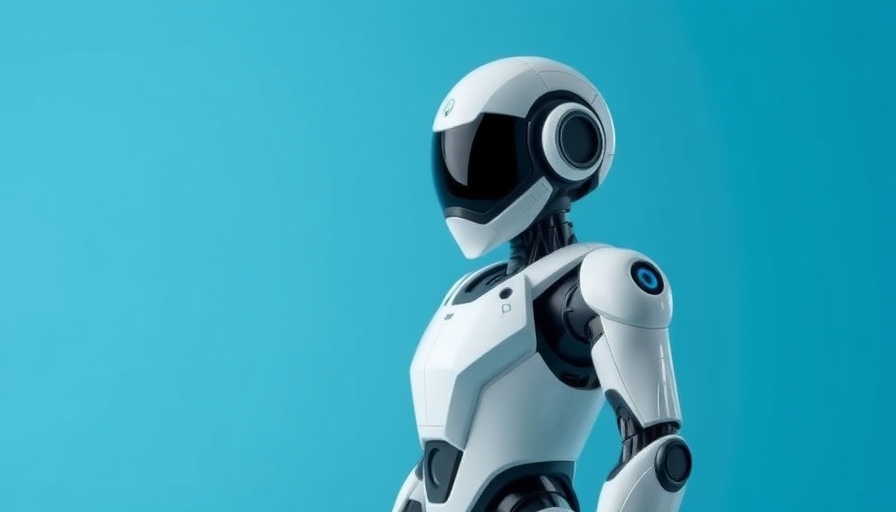
Tesla's Legal Battle Over Trade Secrets: A Significant Case for Robotics
In a move that underscores the increasing intensity of competition within the robotics space, Tesla has initiated a legal battle against former engineer Zhongjie “Jay” Li for allegedly stealing proprietary information to kickstart his own robotics company, Proception. This case not only highlights Tesla's aggressive protection of its intellectual property but also raises pressing questions about ethical practices in the rapidly evolving field of humanoid robotics.
The Allegations: Downloading Secrets
Tesla’s lawsuit points to a pattern of misconduct purportedly committed by Li during his tenure at the company from August 2022 until September 2024. Details from the complaint reveal that Li downloaded confidential data related to advanced robotic hand sensors onto two personal smartphones, a breach of trust that has serious legal repercussions. Within days of leaving Tesla, Li registered Proception, claiming to have developed humanoid robotic hands strikingly similar to designs he worked on at Tesla. As reported, Proception is positioned to revolutionize human-robot interaction, yet the legitimacy of its technology is now under scrutiny due to these allegations.
Implications of the Lawsuit for the Robotics Sector
The implications of this case stretch beyond Tesla and Li. As companies vie for dominance in innovative technology such as robotics, the protection of trade secrets becomes paramount. The outcome of Tesla’s lawsuit could set a critical precedent regarding the enforcement of intellectual property rights, influencing how startups and established companies alike approach competitive practices within the tech industry.
Ramping Up Competitive Tensions
This situation also brings to light the ethical dilemmas that face engineers and developers in the technology sector. The line between inspiration and appropriation can often become blurred, particularly when individuals transition between industry giants and their own startup dreams. As pointed out in industry discussions, this case may provoke broader discussions about the obligations of employees towards their former employers and the sanctity of proprietary information.
Tesla's Optimus Program: A Snapshot
Tesla’s robotic initiative, the Optimus program, has been on a rollercoaster path since its announcement. Initially unveiled in 2021, the project aims to produce a humanoid robot capable of performing a variety of tasks. Despite ambitious timelines, the launch of the Tesla Bot has faced delays, with Elon Musk projecting the beginning of sales in 2026. This ongoing struggle casts further light on why Tesla is keen to safeguard its innovations through litigation, especially as it seeks to carve out a successful niche in the competitive robotics landscape.
Looking Forward: The Future of Robotics
As we watch this legal case unfold, the question remains - what does the future hold for artificial intelligence and robotics? Will startups continue to sprout from the shadows of larger corporations, and how will the established players respond to such challenges? With all eyes on Tesla's Optimus, the developments in this case may very well shape the direction of cutting-edge technology for years to come.
Conclusion: A Call to Stay Informed
This legal case reveals much about the tech industry's tightrope of innovation and ethics. For those interested in the latest tech news, especially in robotics, it is essential to monitor the outcomes and implications of such high-stakes cases closely.
 Add Row
Add Row  Add
Add 



Write A Comment